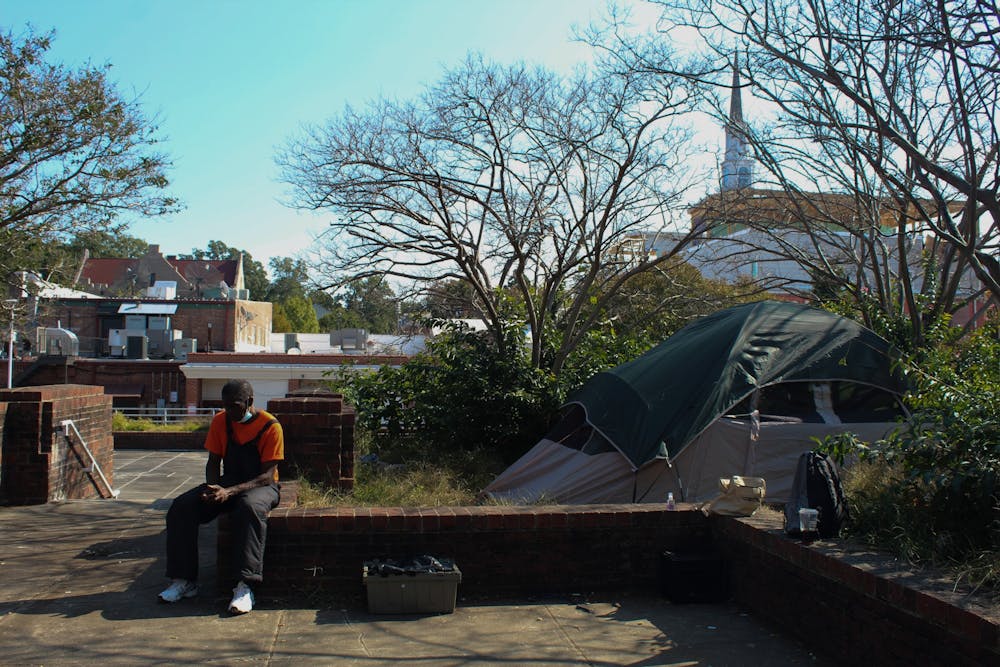As Donald Hardin left the headquarters of Orange County's new street outreach program last week, he paused by several people sitting on the wall outside the building and asked “How y’all doing?”
Hardin continued and told them he would try to find a better place for them to rest their heads.
“They looked at me like ‘Who the heck is he?’” Hardin said.
He said he’d be back again and continued walking through downtown Chapel Hill.
And he did come back. Monday was his first time on the street working for the Orange County Street Outreach, Harm Reduction and Deflection Program, a new partnership between the county's Partnership to End Homelessness and the Criminal Justice Resource Department.
The program is a peer and therapeutic-based outreach unit for those who experience homelessness. This is something the Town has lacked for four years since the last program provider, Housing for New Hope, stopped working in Orange County.
Thanks to Caitlin Fenhagen, director of the Orange County Criminal Justice Resource Department, and homeless programs coordinator Corey Root, a new program was proposed and implemented Oct. 5.
“My interest in this program, particularly, is to deflect people experiencing homelessness with behavioral health issues from the criminal justice system,” Fenhagen said.
Root said she joined forces with Fenhagen two years ago when they both realized a street outreach program would be beneficial in their areas of work.



